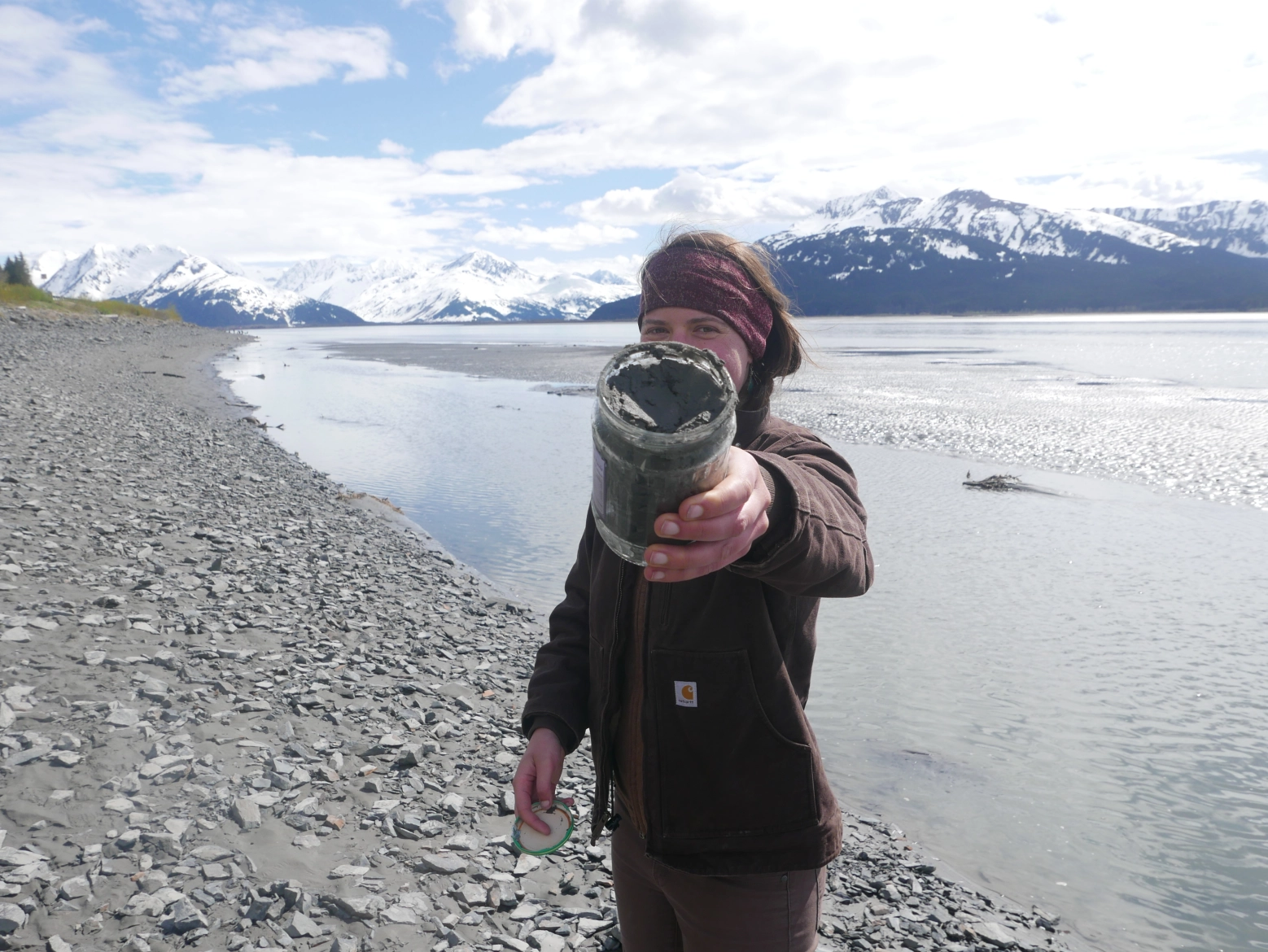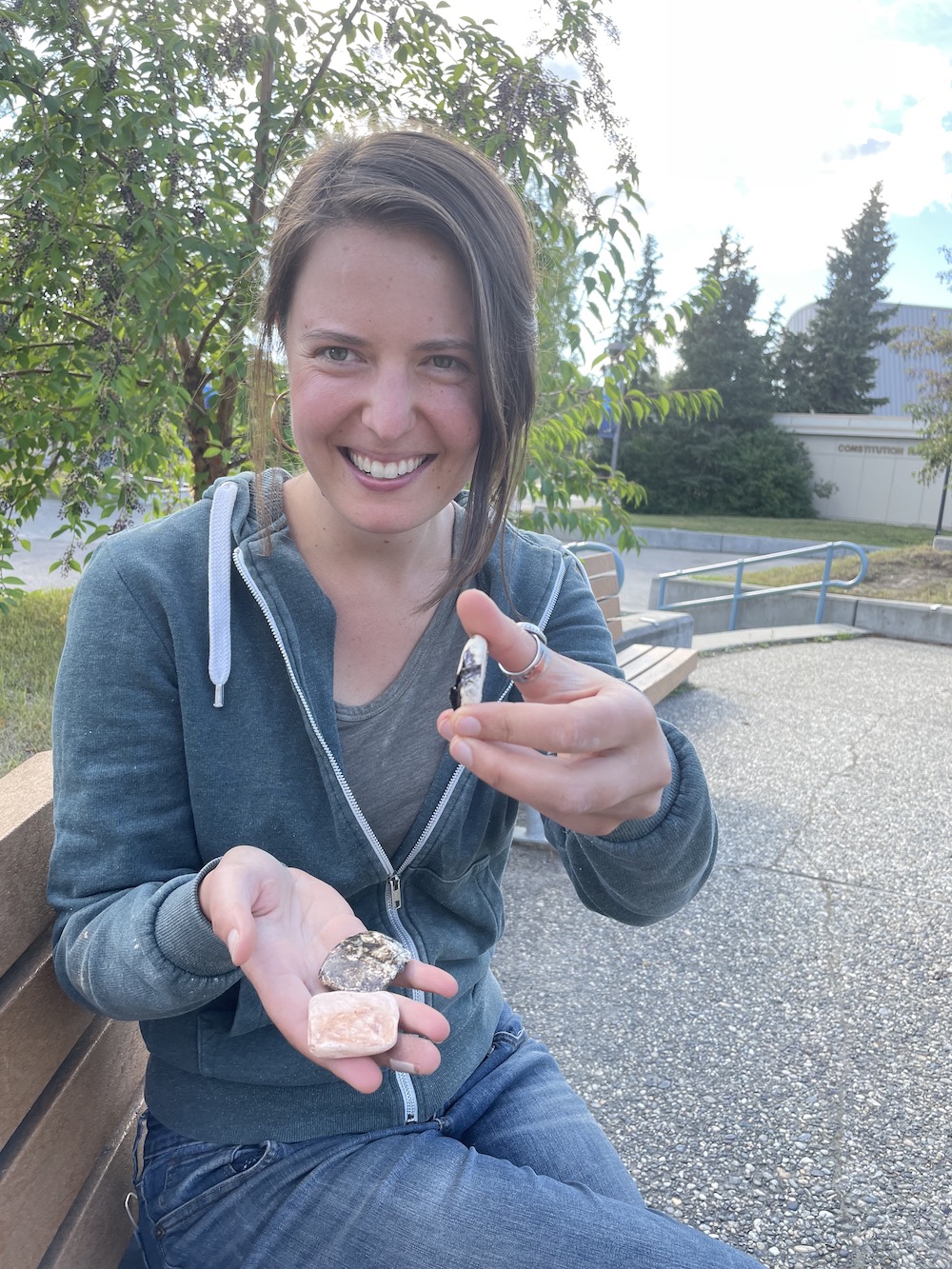Grains of Alaska made into art
Ned Rozell
907-474-7468
Oct. 6, 2022

Kelsey Aho holds a jar of clay she collected while fishing for hooligan on Turnagain Arm near Anchorage in 2021.
Kelsey Aho works as a mapmaker for the U.S. Forest Service in Alaska. She is also an artist who collects earthen materials on her travels around the state.
Throughout Alaska, Aho has gathered mineral soils — including clays when she can find them — as well as ash. She has collected from, among other places, the Denali Highway, Hartney Bay near Cordova, the Chilkat River and Murphy Dome in Fairbanks.
Aho transforms the soil into palm-size ceramic tiles that help her share Alaska with people who might not get to those places.
“I can hand a piece of the Yukon River or Mendenhall Glacier to someone thousands of miles away and say ‘This is what the glacier’s edge looks like,’ or as they move their hand across the piece, ‘This is what the river feels like.’”
Aho creates the touchstones in the pottery studio by forming the material into a square shape after mixing it with commercial clay. Then she slides the tiles into a kiln and heats them to about 1,800 degrees Fahrenheit. The tiles come out as brittle ceramic pieces that turn into stoneware when partially glazed and fired a second time to about 2,200 degrees.
She got the idea for the project after her aunt and uncle’s house in Michigan burned down. Aho’s father Doug, a fellow clay enthusiast, gathered some of the ash and gave it to his daughter.

Kelsey Aho shows ceramic tiles she created from minerals gathered around Alaska.
Aho pulverized the ash before applying it to the exterior of a few serving dishes she fired at a studio in Juneau. There, the ash melted, creating a shiny coating with colors and textures reminiscent of the lost house and some of the things within it.
Since then, Aho has spread clay from Alaska beaches into jars and slipped ash from road cuts into Ziplocs. She has asked friends and scientists roaming the state to do the same.
This effort has netted her bags of Alaska from all over, including permafrost soils pulled by scientists from beneath the frozen ground surface. Aho has created pottery from the fragments of Alaska and given them back to people who brought her the raw materials.
Over the days and weeks, the raw and fired clays have deepened her connection with Alaska.
“It’s been my way of exploring and building a relationship with the land,” Aho said.
Aho’s Alaska pottery tiles will be featured at the Alaska Biennial 2022 exhibit at Anchorage Museum from Nov. 4, 2022, until March 5, 2023.
Since the late 1970s, the University of Alaska Fairbanks' Geophysical Institute has provided this column free in cooperation with the UAF research community. Ned Rozell is a science writer for the Geophysical Institute.


